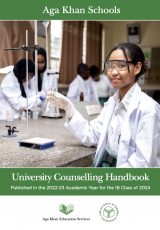Portugal's Academy of Sciences
Remarks by His Highness the Aga Khan at the Academy of Sciences in Lisbon, Portugal
Professor Oliveira,
Minister of National Defence, Mr Nuno Severiano Teixeira,
Minister of Culture, Mr Pinto Ribeiro,
Apostolic Nuncio, Rino Passagata,
Excellencies,
Members of the Academy,
Distinguished guests,
Ladies and Gentlemen
It is an immense honour for me to be here today and to have been admitted to the Academy of Sciences of Lisbon. It reminds me of the day on which I was given an honorary doctorate from the University of Evora. And I do not want to let this occasion pass, without recollecting that very, very special day.
You here in the Academy are guardians of old knowledge and developers of new knowledge. And I thought I would share with you today, very briefly, some of the reflections that have occurred to me since I have completed my journeys in the developing world during my Golden Jubilee.
I visited numerous countries in Africa, Asia and the Middle East and I came into contact with men and women who were intelligent, mature, responsible and who were seeking to build nation states – nation states which would be autonomous, which would be well governed, whose economies would be competent, but these builders were seeking to build on the basis of an enormous knowledge deficit. These men and women in public office simply did not have access to the demography of men and women who are sufficiently educated to be able to man the institutions of state.
And I have come away with another question stemming from my point that there is a deficit of knowledge? The key question is a deficit of what knowledge? What knowledge is necessary in these environments, so that in the decades ahead we can look towards stable nation states around the world?
My conclusion was that the deficit of knowledge is in many areas which are not being offered in education, which are not being taught. Because what have been inherited are curricula of the past, reflections of the past, attitudes of the past, rather than looking forwards, asking what do future generations need to know. And that is the central question which needs to be asked, and on which an academy such as this can have such a massive impact.
Let me mention three areas. First of all, there is the nature of society in these countries. One of the characteristics of all these countries is that they have pluralist societies. And if pluralism is not part of the educational curriculum, the leaders and the peoples of these societies will always be at risk of conflict, because they are not accustomed to pluralism and they do not value it. People are not born valuing pluralism. Therefore pluralism is the sort of subject which needs to be part of education, from the youngest age onwards.
Another aspect is ethics. But not ethics born of dogma, but ethics in civil society. Because when governments fail in these parts of the world, it is civil society which steps in to sustain development. And when ethics are not part of education, teaching, examinations; when they are not part of medicine, the quality of care; when they are not part of financial services, then civil society is undermined. Ethics in civil society is another aspect which is absolutely critical.
The third example is constitutionality. So many countries which I have visited have stumbled into, run into difficulties in governance, because the national constitutions were not designed and conceived to serve the profiles of those countries. And therefore, teaching in areas such as comparative government is another area which is absolutely critical.
If these are the subjects which are necessary today, what are the subjects which will be necessary tomorrow? Is the developing world going to continue in this deficit of knowledge? Or are we going to enable it to move forwards in to new areas of knowledge? My conviction is that we have to help these countries move into new areas of knowledge. And therefore, I think of areas such as the space sciences, such as the neurosciences. There are so many new areas of inquiry which, unless we make an effort to share globally, we will continue to have vast populations around the world who will continue in this knowledge deficit.
Portugal has an extraordinary history. It has been influencing the world for centuries. Your influence today is not limited to Europe. Your influence is massive through your presence in South America. A country like Brazil is a case study for many countries around the world. Brazil is dealing with new areas of knowledge in air transport – that is a new area of knowledge – competing with the best in the world in areas such as agriculture, the development of cash crops, and sugar at new levels of technology.
So the influence of Portugal and the capacity of Portugal to influence what is happening around the world is immense. And it is in this context that I want to thank you for electing me a member of the Academy and for the opportunity you have given me to encourage you to use your global influence, through your history, through your knowledge, through your contacts with the developing world, to bring to the rest of the world what is best in your knowledge.
Thank you.




